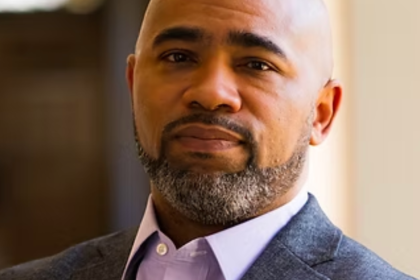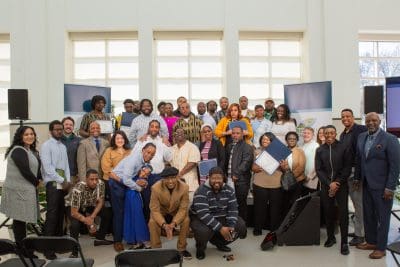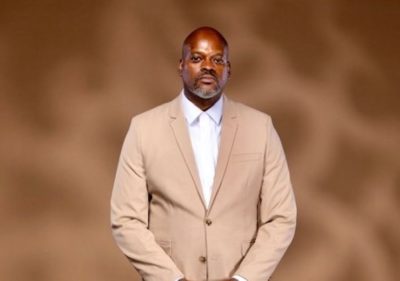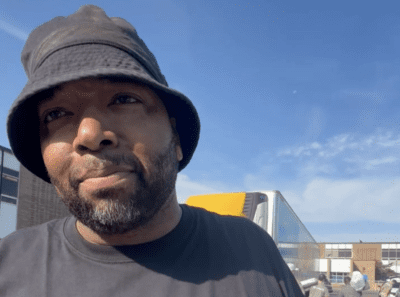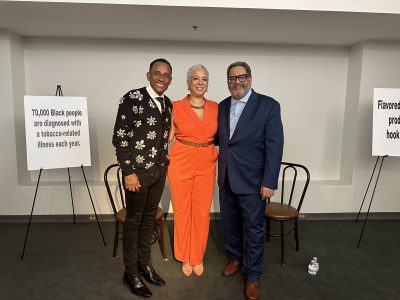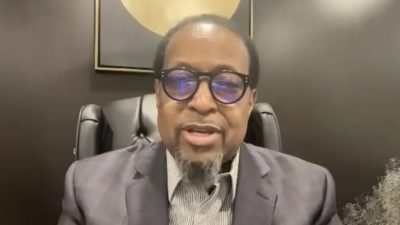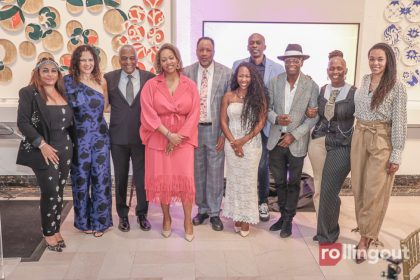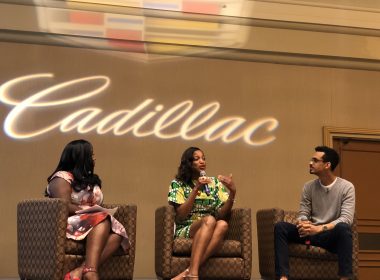
LaTrice Jordan, vice president of marketing and development for Matrix Human Services, is committed to making a difference for her beloved hometown of Detroit by helping the most vulnerable population in the city, the poor.
What is the vision for the nonprofit?
Inspired by its heritage since 1906, the mission of Matrix Human Services is to advocate for and serve the most vulnerable in the metropolitan Detroit community and empowers individuals and families to enhance the quality of their lives and achieve self-sufficiency.
Matrix, a proven leader in uniting all human service efforts to move individuals and families toward self-sufficiency in our time with your help … eradicating poverty of the mind, body and spirit.
Who are the immediate beneficiaries of the services you provide?
Matrix Human Services serves more than 25,000 individuals and families annually. Matrix is leading dynamic change across the country with our Transition to Success™ model. This poverty model, implemented across all Matrix programs, coordinates care for basic needs, learning to read, getting an education — including GED and higher education — financial literacy and volunteerism. It has been our vision to have a national model of care that frames poverty as a condition that requires treatment and not a character flaw. That dream is today becoming a reality. We are changing the mindset of community leaders and those we serve by providing a realistic pathway to improved health and economic self-sufficiency.
What are the best practices you have found for developing programs?
Transition to Success™ evidence-based best practices.
Transition to Success™ is based upon evidence based best practices of care management, financial literacy, volunteerism and peer mentoring. TTS™ integrates these four best practices into a comprehensive standard of care for those living in poverty.
Care management
The current system of care depends almost entirely on the personal knowledge base of and capabilities of the practitioners. Care management is demonstrated in the literature across all client populations with integrated service delivery methods to provide coordinated, comprehensive care to reduce duplicative services for the most effective outcomes. TTS™ uses the concept of a Care Network to identify and coordinate all of the resources an individual is eligible for throughout the community and across systems: human services, education, government, healthcare, and faith-based.
Financial literacy
Evidence shows that financial education can help individuals save money and build wealth. The research shows that low levels of financial literacy may lead to poor health, deceased quality of life, and lower college attainment levels, affecting the well-being of individuals, families, and communities at large[1]. For those living in poverty, this is focused on knowledge regarding predatory lending practices, budgeting, and credit management[2].
Volunteerism
Regardless of age, race, or economic status, volunteering improves social, psychological, economic and health[3]. For clients who volunteer, there is a significant shift to empowering the individual, in which for the first time they are the needed and not the needy. In addition, TTS™ uses volunteerism as a vocational platform to gain work experience and build social networks.
Peer mentoring
Peer mentoring also capitalizes on social networks but in a different capacity. Peer mentoring is demonstrated as one of the most effective of practices across age groups and populations for developing social supports: the “been there done that” point of reference. This is significant for clients who are past the beginning stages of the model addressing basic needs and are in the secondary component to map their dreams. It also provides a natural bartering system for clients when interacting with one another: I can watch your children if you can drive me to the grocery store.
Care management of existing resources integrated with peer mentoring, financial literacy and volunteerism empowers clients to achieve educational and economic success for themselves and their families. The effectiveness of the integration of these best practices is currently being evaluated with demonstrated outcomes in its early stages of evaluation. As TTS™ uses a standard of care methodology with a continuous quality improvement cycle, these best practices will continually evolve to incorporate any additional practices that lead to effective outcomes.
What are the two most important ways you generate revenue to sustain your nonprofit?
While there are many important ways to generate revenue, the two most utilized at Matrix are fundraising and grants.
Do you fund other nonprofits?
No we do not fund other nonprofits.
What are the three areas that you focused on help society?
Basic needs
Education
Self-sufficiency
Quality of life
How have the needs for your service and funding changed over the years?
With 60 percent of children born in Detroit living below the poverty line, (Stanford University, 2014) and 47 percent of adults being functionally illiterate, it’s undeniable that services provided by Matrix Human Services are in demand today more than ever before. Matrix Human Services continues to impact and empower with our Transition to Success ™ (TTS™) model, implemented across all program sites, viewing poverty as a treatable condition and not a character flaw. This model assists individuals and families achieve a life of economic self-sufficiency.
How do you utilize technology to serve your benefactors and to communicate your mission?
Matrix Human Services strives to keep up with technology to communicate effectively with benefactors including Facebook, Twitter, Instagram, e-marketing, e-newsletters, raiser’s edge (data/emarketing tool), and through our website.
Name three nonprofits of equal size or scope whose mission you appreciate and explain why.
Forgotten Harvest
United Way of Southeastern Michigan
Salvation Army
All three organizations empower individuals and families affording them a better way of life.
Why is service so important to you?
As a native Detroiter, I am humbled that others see me as a leader, putting service as the focus of my life and career. Described by my peers as an innovator, business leader and visionary, I take pride in serving others in the Detroit community that provided me with incredible opportunities. Joining Matrix Human Services as marketing director in 2010 and being named vice president of marketing & development in 2012, I take pride in successfully rebranding Matrix, increasing corporate engagement by 70 percent, donations by 50 percent and positioning Matrix as a sought out expert by media locally and nationally on fighting poverty. What that means for our clients is a larger reach for service. I’m grateful for hundreds of supporters who have helped me lift thousands offering resources, comfort and hope.
When did you decide that being a nonprofit professional spoke to your career goals?
After spending 27 years in corporate marketing, I felt a need for a change. I had always volunteered as giving back was instilled in me in my youth. Fate reached out to opportunity and I embraced a chance to serve. The personal reward from helping others is indescribable. It gives my life greater meaning.
Name three nonprofit leaders whose work you respect and appreciate.
Dr. Marcella Wilson, Matrix Human Services
Tracy Thomas, United Way
Paula Tutman, WDIV/Paula A. Tutman Children’s Tooth Fairy Foundation
Name three business leaders whose philosophy on giving of personal wealth you respect and explain why.
Dr. Marcella Wilson, creator of the nationally recognized Transition to Success™ model designed to transition individuals and families out of poverty.
Cheryl Thompson, Department of Human Services for her selfless approach to helping other.
Shawn Wilson, Ford Motor Company Fund dedicated to youth in the community.
What advice would you give to an individual looking to start a nonprofit?
First, ask yourself why? Make sure that your vision and mission aligns with your passion and commitment to serve others.
What would your graduation speech be to college student about becoming a nonprofit professional?
The power of failure inspired by my CEO, Dr. Marcella Wilson. Every extremely successful individual, had hundreds of failures before they arrived at greatness. Never give up and always find new ways to reinvent yourself.
Finish the sentences …
My work is fulfilling because … daily I see lives being changed forever. The Matrix Transition to Success Model™, helps families and individuals achieve self-sufficiency. We breaking the cycle of poverty.
Effecting change for humanity means … a better world with impactful outcomes that change lives.
Giving to a social cause is good because … it takes a village to not only raise a child but to help a community rise to new heights.
I want to make a difference for humanity because…It’s not about me. It is my calling in life to change lives and I’m afforded the opportunity to do that.
Name three books or writers who inspire you.
The Holy Bible – NIV
The Art of War – Sun Tzu
5 People You Meet in Heaven – Mitch Albom
Name your two favorite vacation spots to recharge.
Cabo
Bahamas
What four things do you place in your bags when you take a trip?
Clothing
Essentials
The perfect shoes
Accessories
Name two types of music you listen to on a trip.
Jazz
Big Band
List two quotes that you live by.
“If It’s predictable, it’s preventable.” – Author Unknown
“What you think about, you bring about.” – Mary Kay
Name three role models who changed your life.
Dollie Childs, My late mother
Dr. Marcella Wilson, Matrix CEO,
Hattie Evans, my late grandmother
[1] American Association of States Colleges and Universities, 2010.
[2] U.S. Department of the Treasury, Community Developments Fact Sheet 2012.
[3] “The Health Benefits of Volunteering: A Review of Recent Research.” 2007. www.nationalservice.gov.

